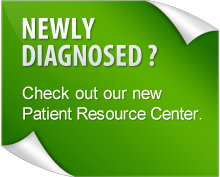Hi, my name is Sophie, I'm 18, and from New Zealand. I was DYNA's first member from overseas. This is my story:
I was always someone who liked to be busy. Drama, theatre, sports, choir, netball, softball, flute and singing lessons, debating, jazz-ballet, theatre productions, volunteer work in the form of netball coaching and umpiring…. I did those things regularly, and although life was full to bursting at most times, I loved it. But none of those things could ever prepare me for what I would go through next.
About half way through my fifth form year of school, when I was 15, I started fainting, and having weird pains in my chest. These symptoms didn't bother me much, and I continued with school and everything else. By the end of fifth form though, I was fainting a lot more, and was sent by my doctor to see a cardiologist. I got the usual cardio tests done, Holter monitors, treadmill tests, ultrasounds, the works. Nothing was really wrong, my heart looked fine, although in the tilt table test I had, I passed out in under 5 minutes, an Auckland (New Zealand) record they told me.
So I moved on and was basically told the fainting would go away and that “tall, slim girls at my age did have a tendency to faint,” and not to worry about it.
It wasn’t that easy. I kept getting worse and worse, and the day after my Birthday, on May the 2nd 2002 , I ended up going to hospital by ambulance with bad chest pain. Shortly after that, I sat my mid year exams, and had to stop school. I was fainting, feeling dizzy, getting bad joint pain, had constant head and jaw pain, had bad stomach problems (like cramping, and having nausea and diarrhea), and was always tired and had a million other symptoms. The worst symptom at that stage though was my chest pains. They would be so severe they would put me on the ground and I would just scream. They would last 20 to 40 minutes and after that I would blackout and not come around for 20 minutes. For about 4 months, I had three of these chest pains a day. Truthfully, I'm not sure how I survived that period, both physically and mentally.
I went to cardiologists, neurologists, physiologists, gastroenterologists, endocrinologists, G.P.’s, everything. I had ultrasounds, an MRI, a bone scan, a gastroscopy, esophageal manometry, hospital monitoring, EEG’s, ECG’s, Video EEG’s, and a million other tests. It was always the same, they couldn’t find anything structurally wrong, and everything looked to be in working order. I appreciated the honesty of the doctors who told me that they were sorry, but they could not find anything wrong and it was out of their expertise. I did not appreciate some of the other doctor's comments. They said I was crazy, had overbearing parents, and basically hurt me so much. I remember in hospital this doctor telling me that it was all in my head, and I just burst into tears.
It’s not fun being undiagnosed. People don’t know what you have, so don't know if they should believe you or not. You feel paranoid, like everyone is against you. You feel really scared, because you have no idea what you have or how to treat it. You have to be subjected to lots of testing and drug trials. And all the while that this is going on your trying to deal with your symptoms and your pain. Invisible illnesses are difficult because you don't know how someone feels, unless they faint or have something you can visibly see.
When you stop doing all the things you used to do as well, it feels like you lose your personality, that you lose who you are. I think this is one of the hardest things I had to deal with. I always thought the things I did defined me. I had no idea who I was when I lost those things. It took me awhile, but I can look back on that period and laugh. The things you do don't define you, it is the person you are. That was a huge turning point for me; it made me feel a lot better emotionally.
To make a long story shorter, in about June of 2003 I was finally diagnosed with dysautonomia. I was so relieved to have a name for what was going on. I remember searching for more information on dysautonomia and finding the DYNA website. I sat there, reading all these stories from people just like me, and just bawled at the computer screen, knowing I wasn't alone anymore. When I joined DYNA, it was like a whole new world had opened up. There were all these people who was so lovely, and we could just talk and talk and I would feel like they completely understood me. It didn't matter that I was over the other side of the world from them, they made me feel like they were right next door. I've been with DYNA for over 2 years now, and I am so thankful for all the support I've gotten. I now co-coordinate the awareness committee too, and that is fantastic.
Before and after I was diagnosed, I went through lots of emotional stages. I was in denial sometimes, other times I would accept my illness, other times I would try and bargain with my body or some other higher force and other times I would just grieve for all the freedom and things I had lost. I would get angry too, and would feel jealous of all my friends at school. I went through a stage where I was really depressed. It is so normal to go through these things though, it is just part of the grief process. Sometimes you think you have gotten through it, and then suddenly you go back into another phase. That's cool though, it's just all part of it, and you have to go with the flow and not fight it.
I’m happy to say my chest pains are a lot better now. Instead of three a day, I get one to two a week. I still faint, get dizzy, have bad headaches, fatigue easily, have the most incredible joint pain, get all sorts of stomach problems, get brain fog, can't regulate my body temperature properly, have vision problems etc, but I have medication and painkillers to somewhat control these things. You can't really compare symptoms with other symptoms; you just deal with them all. I have good days and bad days. Sometimes my body won't let me get out of bed, but other days I can get up, and even go out, which is fantastic.
I am currently studying early childhood education through online university. My dream is to be a primary school teacher or a speech therapist, maybe both. I still love drama, and you better believe I will get back on that stage. I love hanging out with my boyfriend and good friends, swimming when I'm able to, taking photos, making jewellery and crafting, and doing a bunch of other things.
Having dysautonomia has pushed me to the very limits of my soul, and while I would love to be well again, I don't think I would change my experience for anything. I live each day as it comes and find something to smile and laugh about everyday. I have met some of the most amazing people in DYNA, and found some of my best friends there too. I have grown so much, and discovered strength I never knew I had. I have found who are my real friends, and who aren't. I appreciate everything so much more than I ever did, and what I appreciate the most is my wonderful family. I am so amazingly blessed to have them, and they make me feel like the luckiest girl in the world.




